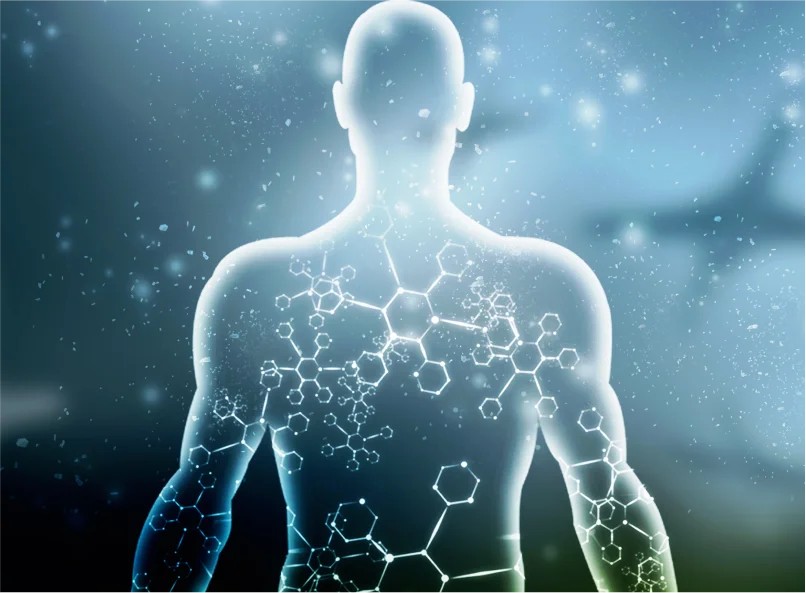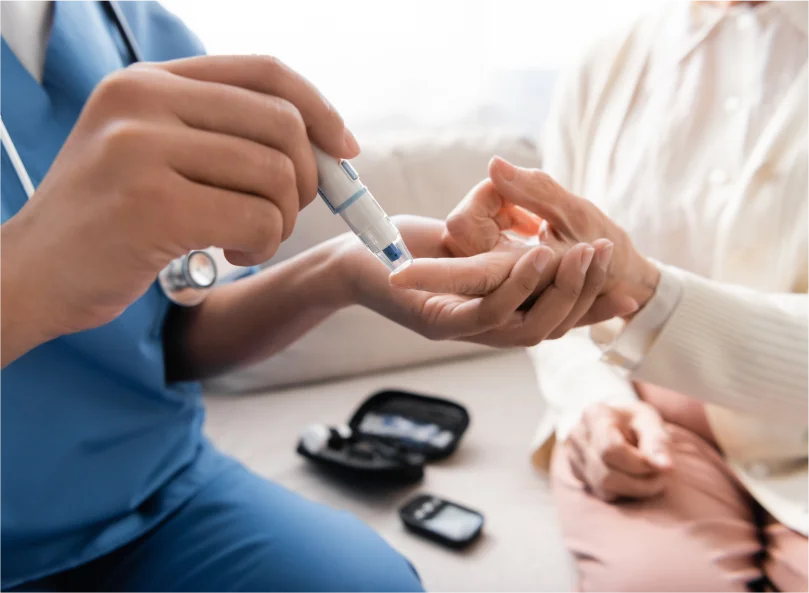Digestive Issues
Your gut microbiome is a collection of bacteria that live in your intestinal tract
Digestive disorders have been given many names in Allopathic Medicine, but they all essentially relate to one thing: The Microbiome.
Everyone has a combination of good bacteria and bad bacteria. The bacteria are no different than any other living being – they all are fighting for power and dominance. The group with the most power will set the stage for the health of your gut. One person may present with symptoms such as acid reflux, while another will experience IBS. Left untreated, these conditions can lead to more serious gut complications, such as Ulcerative Colitis or Crohn’s disease. It’s important to note that your digestive tract houses 80% of your immune system, neurotransmitters that dictate your emotions and mood, and hormone receptor sites that regulate your endocrine system. Therefore, a poor gut environment does not just result in bloating or constipation, but can literally affect the most important systems in your body, and even your personality.
Symptoms of Digestive Issues
Abdominal
pain or cramping
Loss of
appetite
Bloating
and gas
heartburn,
acid reflux
Diarrhea
or constipation
Nausea
or vomiting

Reflux/GERD/Heartburn
When there is a burning sensation in the throat and chest
“I experience pain below the sternum – the acid comes all the way up to my throat and I can only sleep in a sitting position.”
It’s important to understand that acid reflux is NOT a disease of too much acid being produced, but rather it’s a condition related more commonly to a hiatal hernia – a condition in which the acid is coming out of your stomach, where it’s supposed to remain.
Treating Reflux /GERD/Heartburn
With an environment lacking in stomach acid, the bacteria H Pylori can thrive. This bacteria is responsible for ulcers, as well as a tremendous amount of bloating. With the overgrowth of this bacteria, the microbiome is thrown completely out of balance and becomes a breeding ground for H Pylori, Parasites, and Candida. The result is more pressure on your digestive tract, causing a hiatal hernia, which increases acid reflux symptoms. Ulcers continue to form, and pathogenic bacteria flourishes, damaging the immune system and leading to more serious digestive complications.
Where to Get Help for Reflux /GERD/Heartburn
Can this be fixed? Yes! It’s a step-by-step process of detoxing the gut, addressing the hiatal hernia, rebuilding the proper stores of HCL, weaning off medication, and treating the bacterial overgrowth of the microbiome. After an in-depth consultation, a comprehensive treatment plan is individually tailored for you. Your personalized health plan will have an emphasis on elimination of toxins or reduction of weight may be recommended. Nutritional recommendations according to your genetics as well as helpful exercise and specific herbal mixtures tailored according to your genetics and needs, support a balanced lifestyle. In this way, your natural self-healing abilities can reduce acid reflux symptoms effectively.
Leaky Gut
When eating turns into punishment.
“Immediately after eating I get very tired. I often feel nauseous after meals.”
Leaky gut syndrome (also referred to as increased intestinal permeability) is the result of a damaged intestinal lining. When your intestine becomes permeable, it means that there are tiny ruptures in the lining large enough for food molecules, bacteria, and toxins to “leak” out and pass into your bloodstream.
The particles that leak out are viewed as foreign invaders to your immune system and it goes into full on attack mode! This triggers an autoimmune inflammatory response where your body is literally attacking itself.
Individuals experience the side effects of leaky gut in different ways. For many, there is gastrointestinal upset, bloating, IBS-like symptoms, food allergies, cramping, and inflammatory bowel disease. Another common reaction is a worsening of allergies, asthma, congestion, sinus problems, and headaches. Others can actually see their symptoms as they will break out into hives, develop a skin rash, or acne. It can even affect your mind, causing depression, ADHD, and anxiety. If leaky gut goes untreated for a longer period of time, more serious conditions can occur. Autoimmune diseases, such as MS, rheumatoid arthritis, celiac disease, Hashimoto’s thyroiditis, lupus, and psoriasis can all be the result of leaky gut. While there may be other contributing factors to the development of these conditions, leaky gut is a common component in all of them.
Constipation
When bowel movements turn into agony.
“I always feel stuffed, even between meals and I often need to push until it hurts. I never feel that my bowels have completely emptied.”
Bowel movements are not easy and do not occur daily is what we hear from those suffering from constipation. The stool is often dry and hard and the compacted bowel generates bloating, a feeling of fullness, stomach aches, where the bowel movements tend to be painful.
It makes no difference whether the trigger is undernourishment, lack of liquids, too little fat in meals, lack of exercise or metabolic imbalances.
Metabolic residues develop continuously due to improper lifestyle. In the case of constipation, toxins accumulate in the gastrointestinal tract. Triggers such as foods with too little fibre content, travel, stress or an unstable nervous system can aggravate the problem. Each person is different and so each person’s constipation varies.
Irritable Bowel Disease (IBD)
When the bowel functions unpredictably.
“Sometimes I don’t have a bowel movement for days, then after that I have diarrhea.” I feel that I don’t have control over my bowels and I often experience pain.”
Crohn’s disease and Ulcerative Colitis are the most common forms of Inflammatory Bowel Disease. Both are considered an autoimmune disease, meaning that your immune system mistakenly attacks cells in your own body that it considers a foreign invader.
While Crohn’s and Colitis focus on different parts of the intestinal tract, they have very similar symptoms such as diarrhea, abdominal pain, rectal bleeding, weight loss, and fever. Less serious conditions, such as IBS and diverticulitis, can eventually lead to Inflammatory Bowel Disease.
Treating Irritable Bowel Disease (IBD)
Treating IBD starts with removing inflammatory foods and substances and then stabilizing the gut. At the same time, we need to discover what the underlying condition is that caused these symptoms in the first place, find out where the imbalance is in the microbiome, and how this imbalance is affecting the rest of the body. This is a step-by-step process that involves testing, detoxing, as well as dietary and lifestyle changes. In the case of irritable bowel disease toxins accumulate in the gastrointestinal tract. Each person is different and so each person’s irritable bowel disease symptoms vary.
Where to Get Help for Irritable Bowel Disease (IBD)
Healing digestive disorders is a matter of rebalancing the microbiome so that the good bacteria outweigh the bad. Your personalized health plan will have an emphasis on the elimination of toxins as well as making sure you get the right nutrition according to your genetics. Specific herbal mixtures tailored according to your genetics and needs, support a balanced lifestyle. In this way, your natural self-healing abilities can re-establish good gut health.
Don’t let Digestive Issues control your life any longer
Holistic Care for a Variety of Health Conditions

Fatigue
Often fatigue has a lot to do with the Adrenals; two small glands that sit on top of your kidneys. The purpose of your Adrenal glands is to help your body cope with stress and survive.

Insomnia
Sleep disorders can wear you down. When the regeneration of the night’s sleep isn’t sufficient, you can suffer from impaired concentration, lack of memory, lack of motivation, depression or irritability.

Anxiety
When fear is a constant companion. Anxiety is a condition marked by excessive worry, fear, or nervousness that can interfere with daily activities and overall well-being.

Menopause
Menopause is not a “disease” but a natural transition that women go through as they age. Normally occurring in a woman’s 50s, menopause literally means the cessation of menstruation.

Weight Loss
Weight gain obviously has diet as a factor, however, it’s not just about what food you are putting in your mouth, but how your body is processing that food.

Skin Issues
The skin is the largest organ on the body, and is a direct reflection of our internal environment. If your body is inflamed, your skin may present with a variety of conditions.

Digestion Issues
Digestive disorders have been given many names in Allopathic Medicine, but they all essentially relate to one thing: The Microbiome

Autoimmune disorders
Autoimmune disease is on the rise all over the world. More and more people are being diagnosed with an autoimmune disease daily

Diabetes
Diabetes is one of the most common problems in the United States today, with over 26 million Americans affected. This disease disrupts all aspects of human physiology
